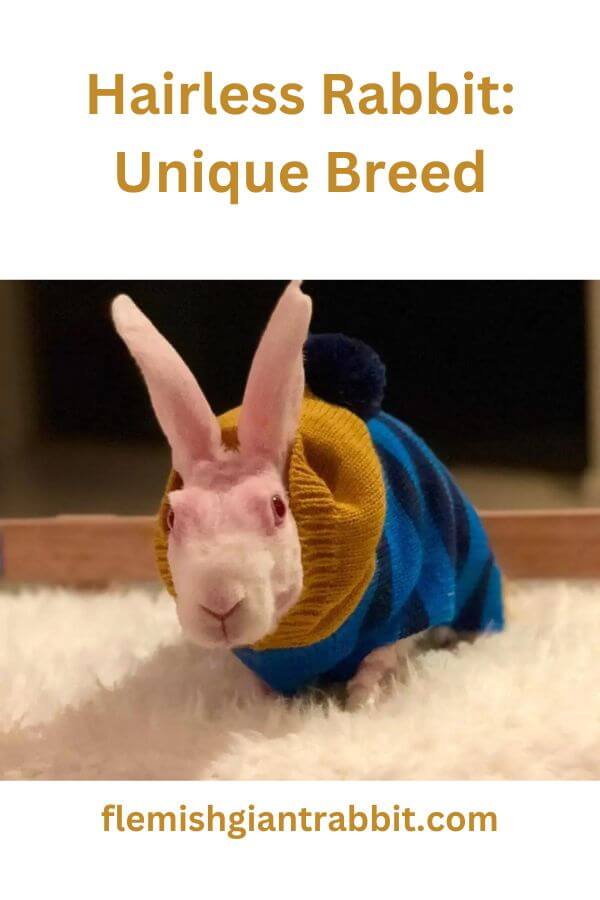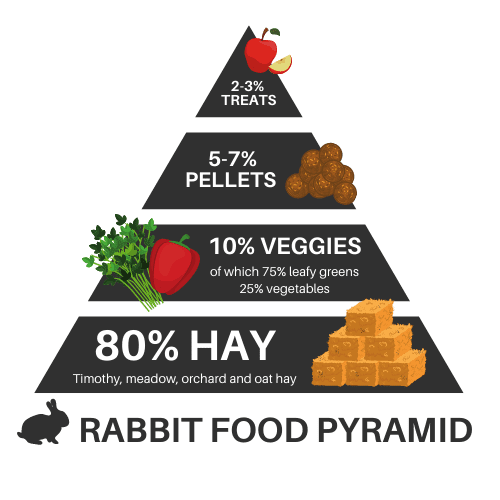
Are you curious about the intriguing world of rabbits? Well, look no further! In this article, we will delve into the fascinating world of hairless rabbits. These peculiar creatures captivate the attention of many animal enthusiasts. They have a unique appearance and distinct characteristics. From their origins and genetic traits to their care and suitability as pets, we will cover it all. So, let’s embark on a journey to explore the enigmatic world of hairless rabbits together.
Introduction to Hairless Rabbits
Hairless rabbits are also known as bald rabbits or naked rabbits. They are a distinctive breed that lacks fur or has reduced hair on their bodies. While the concept of hairless animals might seem unusual. Hairless rabbits have gained popularity due to their striking appearance and gentle nature. Let’s dive deeper into the characteristics and origins of these fascinating creatures.
Why are there Hairless Rabbits?
A genetic mutation called “alopecia” is responsible for the hairless trait in rabbits. This mutation prevents the growth of hair follicles. It also prevents the development of fur. The specific gene called the “hr” gene handles hairlessness in rabbits. The most frequent cause of alopecia in rabbits is as follows:
- Stressful circumstances
- Unclean Environment
- Infestation with Parasites
- Skin condition poor
- Infestation of mites and fleas
- False Pregnancy
- Tumor
- Dental issues
- Excessive grooming
- Urinary tract infections
To ensure the health of these unusual rabbits. Responsible breeding practices and routine veterinary care are imperative.
Appearance and Characteristics
Hairless rabbits have distinct physical features and characteristics. These set them apart from other rabbit breeds. Understanding their appearance and traits is important. For example, they can provide valuable insights into their care and behavior.
- Physical Appearance
The most prominent feature of hairless rabbits, as their name suggests, is their lack of fur. Instead of a typical fur coat, these rabbits have smooth, soft, and often wrinkled skin. It ranges in color from pink to gray. Their skin can be quite sensitive and requires special attention. This is so to prevent irritation or sunburn.
Hairless rabbits also have large, prominent ears that provide excellent hearing capabilities. Their eyes are usually bright and alert, and they have a slender, agile body structure. Despite their lack of fur, hairless rabbits have a layer of subcutaneous fat. This fat helps regulate their body temperature.
- Temperament and Behavior
Hairless rabbits are friendly and docile in nature. They are often described as affectionate and enjoy human companionship. These bunnies thrive in environments where they can interact with their owners. They also enjoy other pets because they are social animals. Suited for households with gentle children or other calm animals.
Like any rabbit, they have instincts such as digging, chewing, and marking territory. Provide appropriate toys, hiding spots, and regular exercise. This can help meet these instincts and prevent behavioral issues. Because they lack fur, hairless rabbits might be more sensitive to temperature changes. Keep them comfortable and in a controlled environment, particularly during extreme weather conditions.
Caring for Hairless Rabbits
The well-being and health of hairless rabbits depend on proper care. From maintaining their skin health to providing a suitable diet. Here are some essential aspects to consider when caring for these unique creatures:
Skin Care
Due to their lack of fur, hairless rabbits need special attention. This helps maintain the health of their skin. The following are some important considerations for healthy skin care:
- Examine the rabbit’s skin for signs of infection or itchiness: Redness, swelling, or discharge can be indications of infections. If you see any signs of a problem, take your rabbit immediately away to the doctor.
- Use a soft brush to brush your rabbit’s skin: This will help to remove dead skin cells and keep their skin healthy.
- Wear gloves when handling your rabbit: This will help to protect your skin from any oils or fluids that may come from your rabbit’s skin.
- Moisturizing: Hairless rabbits enjoy regular moisturizing. This is to prevent dryness and keep their skin supple. Use a rabbit-safe moisturizer recommended by a veterinarian to provide the necessary hydration.
- Sun Protection: Hairless rabbits are susceptible to sunburn due to their lack of fur. When exposed to sunlight, ensure they have access to shade. Provide them with sunblock designed for rabbits. Limit their time outdoors during peak sun hours.
- Temperature Regulation: Maintaining a consistent temperature is crucial for hairless rabbits. Ensure their living environment is warm and draft-free, especially during colder months. Use blankets, heat pads, or heaters to provide extra warmth.
Diet and nutrition

A well-balanced diet is essential for the general health of hairless rabbits. Here are some dietary considerations:
- Hay: Hay should be the primary component of a hairless rabbit’s diet. It aids in digestion, promotes dental health, and provides necessary fiber. Offer high-quality grass hay, such as timothy or orchard grass, in unlimited quantities.
- Fresh Vegetables: Introduce a variety of fresh vegetables to your rabbits. These provide essential vitamins and minerals. The best choices are leafy greens like cilantro, parsley, and romaine lettuce. Ty gradual introduction of new vegetables. Then watch your rabbit’s response to prevent digestive upset.
- Pellets: Provide high-quality rabbit pellets in limited quantities to ensure proper nutrition. Avoid those with added sugars or artificial additives.
- Water: Fresh, clean water should always be available for hairless rabbits. Use a water bowl or a sipper bottle, whichever your rabbit prefers, and change the water daily.
Check this article for long haired rabbits.
Grooming and Hygiene
Although hairless rabbits lack fur, they still need regular grooming and hygiene practices. Here are some important aspects to consider:
- Nail Trimming: Trim your rabbit’s nails on a regular basis. This prevents overgrowth and discomfort. Use a pair of pet nail clippers and be cautious not to cut the quick (the blood vessel inside the nail).
- Ear Cleaning: Hairless rabbits may have a higher tendency for wax build-up in their ears. Give gentle ear cleaning with a rabbit-safe ear cleaner and cotton balls as needed.
- Teeth Care: Hairless rabbits, like all rabbits, have continuously growing teeth. Provide them with chew toys and access to hay to promote healthy dental wear. Regular veterinary check-ups are important to watch dental health and address any issues.
Hairless Rabbits as Pets
Hairless rabbits can make wonderful pets for the right owners. Here are some considerations to make to determine if a hairless rabbit is the right companion for you:
Allergies and sensitivities
Hairless rabbits, like the Sphynx breed, may experience allergies and sensitivities. Understanding common allergens and sensitivities is crucial for their well-being.
- Environmental Allergens: Hairless rabbits are sensitive to environmental allergens like pollen, dust mites, mold, and chemicals, causing skin irritation, itching, and respiratory issues. Regular cleaning and minimizing exposure can alleviate these allergies.
- Food Allergies: Rabbits, including hairless breeds, may develop food allergies to grains and fruits and vegetables. Consult a veterinarian if digestive issues, diarrhea, or skin problems occur after introducing new foods.
- Chemical Sensitivities: Hairless rabbits may be sensitive to grooming products, shampoos, and cleaning agents, causing skin irritation. Choose gentle, hypoallergenic products for small animals.
- Parasite Allergies: Due to the vulnerability of rabbits to parasites like fleas, mites, and ticks, allergic responses can occur. Regular parasite prevention and control are crucial to reduce these risks.
Time and commitment
Owning any pet requires time and commitment, and hairless rabbits are no exception. Consider the following factors:
- Social Interaction: Hairless rabbits are social animals and need regular interaction and companionship. Ensure you can dedicate time each day to play, groom, and bond with your rabbit.
- Lifespan: Hairless rabbits, like the Sphynx breed, have a lifespan ranging from 8 to 12 years, depending on factors like genetics, diet, living conditions, and healthcare. With proper care and attention, some rabbits can live beyond 10 years. A balanced diet, suitable living environment, regular veterinary check-ups, and attention to specific needs can contribute to a longer and healthier life for hairless rabbits.
- Veterinary Care: It is crucial to get regular veterinary checkups, vaccinations, and preventative care. This helps in maintaining the health of your hairless rabbit. Consider the associated costs and find a reputable veterinarian experienced with rabbits.
Suitability for Families
Although they can make wonderful family pets. When you plan to adopt one, be sure that they are appropriate for your particular circumstances.
- Children: Hairless rabbits can be gentle and tolerant. This makes them suitable companions for gentle and supervised children. Teach children about proper handling and respect for the rabbit’s needs and boundaries.
- Existing Pets: If you have other pets, predators like dogs or cats, ensure they are well-behaved. be certain that they can coexist peacefully with a hairless rabbit. Proper introductions and supervision are crucial.
Conclusion
Hairless rabbits are unique creatures that capture the attention of many. They have a striking appearance and gentle demeanor. Despite their lack of fur, they have special care requirements. They also deserve love and attention like any other pet. Consider your options carefully before bringing a hairless rabbit into your family. Learn about their requirements, and speak with knowledgeable breeders or vets.
Make sure you can provide a suitable environment. With proper care and a loving home, a hairless rabbit can be a delightful companion. They can also be a source of endless joy and fascination. So, are you ready to embark on this remarkable journey with a hairless rabbit? The world of hairless rabbits awaits you with open paws!